So, you’re looking to become Swiss? First of all, welcome! You’re not the only one, whether you’re dreaming of lakeside life in Lucerne or mountain mornings in Zermatt. I’ve spent years living in Switzerland, and I totally understand the appeal. Everything from the clean streets, safe cities, on-time trains, and unrivalled nature feels like I’m living in a real-life fairytale.
But truth be told, obtaining Swiss citizenship is no walk in the park. The process is notorious for being rigorous, detailed, and occasionally… well, a little slow. But there are ways to speed up and smooth the process if you know how.
When I first came to Switzerland, everything was just… perfect. Trains were on time, the air was pure, and people played by the rules and nature. Absolutely surreal. Then the honeymoon phase wore, and I found myself asking bigger questions: Can I really make this my forever home? Can I belong here? How do I become a citizen? And what, above all, is the speediest and most practical way to get it done?
Which is where this guide comes in. No fluff, no nonsense just a clear, personal guide to Swiss citizenship.
I have been working my way through the system in recent years, and I have guided friends through the same. I’ve faced a lot of trial and error. I asked many questions at my local Gemeinde office, but I was too scared to hear the answers. There are also a few things I wish someone had told me from Day One. That’s why I started Swiss Sustain to be part of helping make your way clearer, to offer the kind of guidance I wish I’d had.
 Why Become a Swiss Citizen? (And Why I Chose To)
Why Become a Swiss Citizen? (And Why I Chose To)
OK, being honest with you: you don’t need Swiss citizenship to have a great life here.
Switzerland is one of the best places to live in the whole world, for locals as well as for expats. With a C permit, you can live and work, go where you want, when you want, and appreciate 90% of the rights that a citizen enjoys. At some point, though, that tiny question began lurking in the back of my mind: Do I really have a place here, or am I just visiting?
That was when I started to understand the true significance of acquiring Swiss citizenship and why it’s about so much more than just a passport.
You Get a Say in the Country’s Future
One of the more unusual things about Switzerland is the extent to which direct democracy is a part of daily life. Citizens visit the ballot booth for a national referendum several times every year. You won’t just count politicians and laws. You’ll also vote on big changes, like the tax system or building a tunnel under the Alps.
As a longtime resident there, it was strange to see these decisions being made without me. I was a citizen here, paying taxes and making a contribution to society, but I had no voice. That changed when I became a citizen. And let me tell you, voting here in Switzerland feels powerful. You have a place in something that is real.
More Freedom, Fewer Headaches
I remember that, when I wasn’t yet a citizen, every few years, there would be this little thing: What if my permit doesn’t get renewed? What if I change jobs? What if rules change?
Even with a C permit, you remain an outsider in the system. You have to qualify, report your life changes, and prove your stability over and over.
Now? That pressure is gone. I can move anywhere in the country whenever I want. I don’t need permission. If I dislike how one state treats my rights, I can simply move to another. I won’t worry about being sent away on a boat or plane. Essentially, he’s giving me a big, symbolic boat, but he wants to keep those boats he gave to others. That brand of peace of mind is difficult to describe if you haven’t experienced it.
When We Think About the Future – For You and Your Family
If you’re a parent of kids in Switzerland, this is huge. It is about opportunity citizenship opens doors for them, from education to scholarships to the chance to serve in the nation. It provides them with full rights in the only country they might ever know as home.
Even if you are unattached right now, look ahead in time. To be Swiss is to be grounded here, and that means security, stability, and a future.
A Sense of True Belonging
I was really struck by this one more than I thought I would be. I used to cringe when people would ask me where I was from. Well, I’m Switzerland but I’m originally from…
But something changed after I became Swiss. It wasn’t just that I was living in the country I was part of the country.
I voted. On Swiss National Day, I was celebrating not as a spectator, but as one of them.
It’s hard to explain, but belonging is more potent than it may seem.
Is It Worth It?
It’s not easy. It is a matter of time, patience, and genuine integration. But if you love living here, if you see your future here, and if you want to stop sitting on the sidelines, then yes, absolutely, it’s worth it.
You are not just getting a red passport. You’re building a future. You’re saying, this is home.
 The 3 Main Paths to Swiss Citizenship (Quick Overview)
The 3 Main Paths to Swiss Citizenship (Quick Overview)
Before working in Switzerland, you need to know one important thing. It doesn’t matter what visa or contract you require. This knowledge is essential before you begin paperwork, interviews, or language tests.
There’s not just one way to become a Swiss citizen.
You might even be eligible for a quicker or streamlined path, based on your situation. When I started this quest, I was surprised by how many people didn’t know there were three main paths. Choosing the right one can save you years of waiting.
Here’s a quick breakdown:
1. Standard Naturalization (The Common Way)
This is the simplest path for foreigners who have been in Switzerland for years. It requires:
- A minimum of at least 10 years of living in Switzerland (under certain conditions),
- Settling into Swiss life (language, community, not in legal trouble),
- And familiarity with Swiss culture, politics, and daily life.
This is the path I myself went down, and not once you pin it right, breaking it down, I promise, it’s not that frightening.
2. Facilitated Naturalization (The Faster Option)
You may qualify for a faster, simpler process if you meet any of these criteria:
- You are married to a Swiss citizen.
- You were born to a Swiss parent outside of Switzerland.
- You completed your primary and secondary education in Switzerland.
Other niche categories, like second-generation foreigners, also apply.
Generally, it’s faster, it’s less expensive, and it gets you past some of the more stringent requirements.”
But: Not everyone qualifies. We will dig into the specifics in a second.
3. Citizenship by Birth or Descent
You could already have a right to citizenship, or at the very least to have it renewed, even if you were born elsewhere and one of your parents is Swiss. This isn’t exactly something you “apply” for, but it’s worth checking to see if there’s Swiss blood in your family tree.
So Which One’s Right for You?
Each path has its own timeline, its own prerequisites, and its own idiosyncrasies. I’ll take you into all the other paths in the following sections:
- Who qualifies
- How long does it take
- What documents do you need?
- And some irl advice based on my own experience
This summary should give you some guidance about which goal to start with. Next, let’s talk about Facilitated Naturalization, usually a fast route to citizenship in Switzerland.
Facilitated Naturalization (Fastest Option)
If you’ve ever Googled the easiest way to become a Swiss citizen, this is probably what came up.
Facilitated naturalization is the quickest and easiest way to get Swiss citizenship. But there’s a catch: you must meet certain conditions. It may not suit everyone, but if you qualify, you could save years of waiting. Plus, you might avoid thousands of francs in application fees and red tape.
Who Qualifies for Facilitated Naturalization?
Let’s start with eligibility. You may qualify for this fast-track process if you fall into one of these categories:
- Spouse of a Swiss citizen
You can apply for facilitated naturalization if:
- You’ve been married to a Swiss citizen for at least 3 years, and
- You’ve lived in Switzerland for a total of 5 years, including the last 12 months continuously before applying.
Personal Tip: I know a couple who applied just months after reaching the 5-year mark and they got approved in under a year. But the key? They were well-integrated and spoke the language confidently. This process moves fast if you’re prepared.
- Child of a Swiss parent
Even if you were born abroad, you may be eligible if one of your parents is Swiss and you were registered at birth (or re-registered later).
- Second-generation foreigners
If you were born in Switzerland to non-Swiss parents and spent most of your life here, you may qualify under the facilitated route.
- Stateless persons or individuals with close ties to Switzerland.
Key Requirements (Even if It’s Facilitated)
While this path is “easier,” it still requires:
- Proof of integration: You must respect Swiss laws, values, and customs.
- Language proficiency: Minimum A2 written and B1 spoken in the national language used in your canton (German, French, Italian).
- No criminal record: A Clean legal and financial history is essential.
- Stable residency: Especially for spousal applications, showing stable cohabitation is crucial.
Important: The federal government takes care of facilitated naturalization. This means your local authority is often not involved. As a result, the process can go much faster.
How Long Does It Take?
From what I’ve seen and from stories people have shared with me it typically takes 6 to 12 months from application to approval. That’s lightning-fast by Swiss standards.
But timing depends on:
- How complete and accurate are your documents?
- Background checks
- Language proficiency
- Backlog in the federal office
So if you want it to go smoothly, don’t rush the preparation.
Costs of Facilitated Naturalization
It’s also cheaper than regular naturalization. On average:
- CHF 500–900 total, depending on your case
- Sometimes even less for children
Compared to regular naturalization (which can cost over CHF 2,000–3,000 when you factor in communal and cantonal fees), it’s a significant saving.
Real-World Pros and Cons
Pros:
- Faster and more efficient process (no commune or canton approval needed)
- Lower cost
- Less red tape you skip the interviews with local councils
- Ideal for those already connected to Swiss citizens or the country itself
Cons:
- Not available to most long-term residents (only special categories)
- Still requires full integration (language, legal, cultural)
- Can be denied if you don’t show ties to Swiss life
- Spouses must genuinely live together separation or unclear housing arrangements can raise flags.
My Final Advice (If You Qualify)
If you’re married to a Swiss citizen or fall into one of the eligible categories, this is the route I’d recommend 100%. But here’s what I always tell people:
Facilitated doesn’t mean automatic. You still need to show you’re part of Swiss society, not just on paper, but in everyday life.”
So go all in. Learn the language, join your local club or community, understand the culture, and be visible. I’ve seen people speed through this process with a good application, and I’ve seen others wait because they thought being married was “enough.
Up Next: Regular Naturalization – The Standard Path
If you don’t qualify for facilitated naturalization, don’t worry. Regular naturalization is still possible. It just takes a bit more time and effort.
In the next section, I’ll break down the process I personally went through, including all the tips I wish someone had told me before I started.
Regular Naturalization (Most Common Route)
When I first looked into Swiss citizenship, I wasn’t married to a Swiss national, I didn’t have any Swiss parents, and no shortcuts applied to me. That meant I had one option: regular naturalization the long road.
And while it’s definitely more involved than facilitated naturalization, I want you to hear this from someone who’s been through it:
Yes, it takes time. But no, it’s not impossible. If you’re committed to building a life here, it’s absolutely worth it.
Let me walk you through exactly how it works from eligibility to the paperwork, to the often-dreaded interviews with tips I wish I had known sooner.
Who Can Apply for Regular Naturalization?
Here’s the basic requirement to even start the process:
- You must have lived in Switzerland for at least 10 years
- At least 3 of those years must be within the last 5 years.
- You must hold either a B or a C residence permit.
- You must be “integrated” into Swiss life language, community, and culture.
Good news: Years spent in Switzerland between the ages of 8–18 count double! So if you moved here as a teenager, you may be eligible sooner than you think.
What Does “Integrated” Really Mean?
This part can feel vague, but here’s how Swiss authorities define integration—and how I experienced it in real life:
You need to:
- Speak the local language at a minimum level of B1 spoken, A2 written
- Show knowledge of Swiss geography, history, politics, and customs.
- Participate in local life this could mean joining a sports club, volunteering, or even just attending town events.
- Respect Swiss laws and values.s
I joined a local hiking club and helped out at my daughter’s school events. Not only did it help with the process, but it also made me feel like I belonged here.
Step-by-Step: How the Process Works
Here’s the real-life breakdown of the naturalization process, from start to finish:
Step 1: Gather Documentation
Start by collecting:
- Proof of residence (permit history)
- Language certificates (recognized by your canton)
- Tax records
- Proof of employment or financial independence
- CV and motivation letter
Personal Tip: Write your motivation letter in the local language if possible. It shows respect and effort.
Step 2: Apply at Your Commune
You submit your application to your local commune (municipality), not the federal government. This is where things start to feel very Swiss.
You may be asked to:
- Attend an interview with your local authorities
- Meet with cantonal representatives.
- Provide references (neighbours or community members)
Some communes might send a questionnaire. They may ask about recycling rules or your knowledge of Swiss voting systems. Yes, really!
My Experience: I was nervous about the interview, but it was surprisingly casual. They asked why I loved Switzerland, how I participated locally, and a few basic questions about Swiss politics and geography. They weren’t testing me they just wanted to know if I genuinely belonged here.
Step 3: Cantonal and Federal Approval
Once your commune is happy, the canton reviews your application. After that, it goes to the federal level for final approval.
Each layer can take a few months, and the whole process from application to approval usually takes 12 to 24 months.
How Long Does It All Take?
Here’s a realistic timeline:
- Preparation phase (documents, language tests): 3–6 months
- Commune review and interview: 3–6 months
- Cantonal review: 4–6 months
- Federal approval: 4–8 months
So from start to finish, expect 1.5 to 2 years, depending on your canton and how prepared you are.
How Much Does It Cost?
Regular naturalization costs vary depending on your commune and canton, but here’s a general estimate:
- Commune fees: CHF 500–1,500
- Canton fees: CHF 500–1,000
- Federal fee: CHF 100
In total, expect to spend CHF 1,000 – 3,000. It’s an investment, but remember, citizenship lasts for life.
Pros and Cons of Regular Naturalization
Pros:
- Full rights: vote, travel, no permit renewals
- Feels like “coming home”
- Your children can benefit from your citizenship.
- More freedom to move within Switzerland without reapplying for permits
Cons:
- Long waiting period (10 years minimum)
- Requires effort in integration and language
- Each commune can have slightly different expectations.s
- The process can feel intimidating at first
Final Thoughts From My Own Journey
There were moments when I doubted whether it was worth it. The paperwork, the waiting, and the language learning, all felt overwhelming. But when I finally held that little red passport in my hand, I knew I was a resident now.
I was Swiss. I belonged.
So if you’re thinking about it, go for it. Start preparing now. Join that local club, take that language course, and get to know your neighbours. It’s not just about a passport, it’s about building a life and being accepted in a country that values stability, honesty, and contribution.
Language & Integration (The Biggest Barrier for Most People)
To be real, this is where most people are choking.
When I first embarked on my path to citizenship, I wasn’t that concerned by paperwork, or even by interviews. But the language? That seemed like a mountain I wasn’t sure I would be able to climb.
If you’re not already fluent, it’s okay to feel overwhelmed. But here’s what I want you to know from my own experience:
You don’t need to talk like a professor, just a neighbour.
Let’s unpack it, bluntly, pragmatically.
What are the Language Requirements?
To apply for Swiss citizenship, you need to show you can speak one of the national languages. These are German, French, Italian, or Romansh. The language you choose depends on where you live.
The list includes the following minimums:
- B1 spoken
- A2 written
In plain terms:
You can have a chat about your job. Talk about both the every day and the special things you do. Also, share something about Switzerland.
You should be able to pen a brief letter, an e-mail, or a couple of paragraphss without making too many errors.
Pro Tip: Most cantons also accept official certificates, such as the telc, Goethe-Zertifikat, DELF, or FIDE. Ensure you have one that is valid in your canton!
How to Learn a Language Without Going Crazy
This is what has worked for me and for many other people I’ve talked to:
- Use It Every Day
I had to impose a rule on myself: never, ever speak in English at the grocery store. This may all sound easy, but those little gestures mount up. Even ordering a coffee in German/French is something.
- Language Meetups & Tandems
I did one of the most awesome things ever: I found a language tandem, I helped a person learn English, and they helped me with German. It’s low-pressure and very real-life.”
- Listen & Read Like a Local
Change the language on your phone, Netflix, or Spotify to that of your host country. Watch Swiss news, listen to local radio, and read signage out loud. It’s training your brain to think and feel in the language.
- Take a Recognized Course
If you have problems with motivation, be part of a course focused on preparing you for one of the FIDE or telc exams. These programs also often have a citizenship component.
What Does Integration Really Mean?
The Swiss want to know that you’re not merely living in Switzerland, but living with Switzerland.
That means:
- Understanding the Swiss principles and mentality: democracy, neutrality, community
- Getting involved locally: by joining a club, attending events, or just saying hello to your neighbours
- How the system works: taxes, recycling, voting, etc.
Their eyes lit up when I said I’d helped to organize a clean-up day in my village during my interview. It wasn’t really about the trash, it was about being in the community.
Don’t Stress – Prepare Smart
You don’t have to be perfect. The goal is not to think and talk like a native speaker or a political wonk, it is to live as a participant in the Swiss way of life.
My advice? Start early. Be consistent. Speak when you feel weird about it. Show up in your community. But the more you do, the more it becomes second nature, and trust me, it’s worthit when that fat envelope arrives saying “Herzlichen Glückwunsch!
How to Speed Up the Process (Realistic Tips)
If there’s one question I get all the time, it’s this:
Is there a way to speed up Swiss naturalization?
The short answer? Yes, but only if you do the right things. The Swiss system isn’t built for shortcuts, but it does reward preparation, consistency, and integration. I learned this the hard way.
So here’s what works and what doesn’t.
What Actually Speeds Things Up
- Start Collecting Documents Early
Don’t wait until the day you qualify to begin. Gather:
- Permit history
- Tax records (usually last 3–5 years)
- Language certificates
- Proof of employment or financial independence
I had all my documents ready before I was even eligible and it saved me months. The people at my commune were impressed, and everything moved faster.
- Get the Right Language Certificate
Some cantons are very picky. Choose a federally recognized certificate like:
- FIDE
- telc
- Goethe-Zertifikat (German)
- DELF/DALF (French)
Tip: Take the language test a year before applying, so you have time to retake it if needed.
- Be Visible in Your Community
Swiss naturalization is not just about living here, it’s about belonging here.
Things that help:
- Join a local club or volunteer
- Greet your neighbours (yes, it matters!)
- Attend a village/town event.
I joined a local chess club and helped at the school bake sale. During my interview, the officials knew me by name. That personal connection? Huge advantage.
- Apply in a Fast Commune
Not all communes process applications at the same pace. Some are known for faster, more efficient processes, while others are notoriously slow.
If you’re flexible with where you live, ask locals or expats about their experiences. Just a different postcode can mean 6 months faster.
- Keep Your Life Stable During the Process
If you move cantons, change jobs, or switch permit types during the process, it can trigger delays or even restarts. Try to keep things stable until your citizenship is confirmed.
What Doesn’t Speed Things Up (But People Think It Does)
Paying More Money
This isn’t a private service! More fees won’t get you faster approval. It’s not like expediting a passport. Stick to the official routes.
Asking for Special Favors
Swiss bureaucracy is fair but strict. Trying to “push” your case or pull strings will likely backfire. Respect the process, and you’ll be treated fairly.
Rushing Through Integration
Integration is observed over time. Signing up for a club a month before your interview won’t impress anyone. Be consistent, and be real.
Final Advice
If you’re serious about speeding things up, focus on what you can control:
- Be prepared before you’re eligible
- Be present in your community.
- Be proactive, not reactive.e
That’s how I did it, and while I couldn’t skip the 10-year wait, I cut the post-application process down to 14 months (which, by Swiss standards, is lightning fast).
 Can You Buy Citizenship in Switzerland? (Let’s Bust the Myth)
Can You Buy Citizenship in Switzerland? (Let’s Bust the Myth)
Let me just say this straight out:
No, you can’t buy Swiss citizenship. >Not for CHF 1 million. Not for CHF 10 million. Not even with a chalet in Zermatt.
Switzerland doesn’t offer “golden passports” or investor citizenship programs. And believe me, I’ve looked. When I first moved here and heard rumors about “investment routes,” I thought, maybe there’s a faster way. But it’s simply not how the Swiss system works.
But What About Business or Investment Visas?
There are ways to get residency through investments. For example, the Swiss lump-sum tax is for ultra-high-net-worth individuals. You can also apply for a business permit if you create jobs in the country. But even then:
- You still need to live in Switzerland for 10+ years
- You still need to go through the naturalization process.
- You still need to meet language and integration requirements.
I’ve met expats who’ve run successful companies here for many years. Still, they had to take the language test and go through the same citizenship interviews as everyone else. Money doesn’t skip the queue.
Why Doesn’t Switzerland Sell Citizenship?
Because Swiss citizenship is a matter of identity, not money. It’s based on shared values, participation, and integration, not just economic contribution.
That’s one reason why the process is long and thorough. But it’s also why Swiss citizenship is respected worldwide. When you earn it, you truly belong.
Bottom Line
So if you’re hoping to fast-track citizenship by writing a big cheque, I’m sorry to disappoint. But if you’re here to build a life, learn the culture, and be part of the community, you’re already on the right path.
Personal Story / Lessons Learned
When I relocated to Switzerland, I could never have envisaged applying for citizenship.
At the outset, everything seemed alien. We didn’t understand why stores closed early. Our neighbours seemed quiet and reserved. Recycling rules were strict, too. I once got a friendly but stern note for not sorting my PET bottles. I was a foreigner in a country that operated on rules, organization, and a profound community spirit.
But something shifted over the years. Or maybe I changed.
I started to see the beauty in how things worked. The trains that ran on time. The integrity of those who decide to leave a bicycle unlocked in small towns. The examples given tend to be pride in local folkways, such as cow parades in the Alps or the lighting of lanterns on Swiss National Day. I began to fall in love with the quiet self-assurance of Switzerland.
Yet the prospect of becoming a Swiss citizen seemed … distant. Complicated. Almost untouchable.
The Start of My Journey
After about 7 years of living here, I started seriously looking into naturalization. Since I wasn’t married to a Swiss, wasn’t born from Swiss parents, and definitely wasn’t wealthy, there were no shortcuts.
I can remember sweating buckets as I went into the big office, not having a clue what was going to happen. The idea that I faced only cold bureaucracy wasn’t entirely true. I also met helpful staff. They wanted to support the process, as long as I was serious.
That was the main lesson:
The system is not rigged against you, it simply wants you to work.
The Toughest Parts
There’s no question that the language was the hardest for me. Living in a German-speaking canton, I could order food and ask for directions. However, having a B1-level conversation felt like a big jump.
I decided to enrol in a course near me and listened to Swiss German YouTubers. I learned with my daughter, who already knew from school. Bit by bit, it got easier.
There were times I felt like giving up when the combination of work, family, and language study became too heavy. But then I would go hiking and look at the mountains and remind myself why. My home was Switzerland, of course, but not only. It was my home.
What I Wish I Knew Sooner
If I could travel back in time and tell myself things I wish I’d known when I started, here’s what I’d say, and it’s a list I now share with young journalists:
- Start preparing early. Start collecting documents, learning the language, and integrating well before your application.
- Be visible in your community. Say hello, get active in neighbourhood groups, and become a part of the community. It’s more important than you may realize.
- Do not pursue perfection, but display consistency. Swiss officials want to see effort, respect, and a real desire to belong.
Final Reflection
When I finally got the letter that said I was approved, I cried. Not that I had a new passport, but that my pledge had been acknowledged. I was no longer just a guest. I was Swiss.
And that’s what I want for you as well.
If you are on this path, consider this:
You don’t have to be perfect or rich or born into the system.
All you need to do is show up, be open, and be honest. Switzerland sees that. It values it. And eventually, it will welcome you back with open arms.
Common Pitfalls to Avoid (Save Yourself Time & Headaches)
If I had a franc for every time someone told me,
I didn’t realize that would be a problem… I could probably cover my next Swiss health insurance bill.
There are a handful of common mistakes people make on their path to Swiss citizenship and the truth is, most of them are totally avoidable. I learned a few of these lessons the hard way, so I want to help you steer clear of the same traps.
1. Waiting Too Long to Start the Process
Many people think I’ll deal with it when I hit the 10-year mark. But honestly, you should start preparing by year 7 or 8.
- Gather your documents ahead of time.
- Get your language certificate in hand.
- Start engaging more visibly in your community.
I started collecting my paperwork 2 years before I applied. When it was time to submit, I was already ahead and that saved months.
2. Assuming All Cantons Have the Same Rules
Switzerland is a federal country, which means your commune and canton have a big say in how your application is handled.
- Some communes want proof of integration at a hyper-local level
- Others might have more lenient or stricter requirements.
- Interview formats and timelines can vary a lot.
Always check with your local Gemeinde (commune office) for specifics. National rules are the base, but locals have the final word.
3. Underestimating the Language Requirement
Here’s the truth: language can make or break your application. I’ve seen people with great jobs and solid integration get rejected simply because they couldn’t meet the language standard.
- Start early
- Practice often
- Take a recognized exam (FIDE, telc, etc.)
The interview isn’t just a formality, it’s your chance to show your comfort with the language in real life.
4. Thinking “Being Quiet” is Enough
Swiss people are polite and private, but they value involvement. Sitting on the sidelines for a decade, even if you’ve followed every rule, might not be enough.
You don’t need to run for local office, but:
- Say hello to neighbours
- Join a local club
- Volunteer or participate in communal events
During my interview, they asked, How do you contribute to your community? I was glad I had something real to say.
Moving Cantons Right Before Applying
Big mistake! If you move to a new canton or commune just before applying, you might have to restart the local integration period (often 2–5 years).
Unless absolutely necessary, stay put during your final application phase.
Bonus Tip: Don’t Assume Anything
Ask questions. Visit your local office. Join expat forums. Talk to others who’ve been through it.
The most confident applicants I’ve seen weren’t the ones who had everything figured out, they were the ones who asked for help when they needed it.
In Summary:
Steering clear of these mistakes can save you time and help avoid a rejected application. Be proactive, stay informed, and lean into the process. It’s not just a checklist, it’s a journey that, if done right, will feel incredibly rewarding when that final yes comes in.
Checklist to Get Started Today
Prepared to start your process of obtaining Swiss citizenship? Let us ensure that the path ahead is smooth for you.
No matter if you’re starting fresh or are halfway done, this simple guide will help you move forward step by step.
Your Swiss Citizenship Starter Checklist:
- Check Your Eligibility
- ☐ Have you lived in Switzerland for at least 10 years?
- ☐ Do you have a permanent residence permit (Permit C)?
If you’re applying for facilitated naturalization (through marriage or descent), check the special rules.
- Get Your Language Certificate
- ☐ Reach B1 level (spoken) and A2 (written) in the local language
- ☐ Choose a recognized test (FIDE, telc, Goethe, etc.)
Tip: Take the test early, so you have time to improve if needed.
- Gather Essential Documents
- ☐ Proof of residence history (Wohnsitzbescheinigung)
- ☐ Tax records (usually 3–5 years)
- ☐ Employment or financial stability proof
- ☐ Language certificate
- ☐ Criminal record extract
- Show Community Integration
- ☐ Join a club, local group, or volunteer
- ☐ Participate in communal events or meetings
- ☐ Be known in your neighbourhood (yes, even saying hi helps!)
- Check with Your Commune
- ☐ Visit your local Gemeinde office
- ☐ Ask about specific requirements for your canton/commune
- ☐ Request a naturalization guide or checklist if available
- Avoid Last-Minute Changes
- ☐ Stay in the same canton until your application is processed
- ☐ Keep your job/residence status stable
Final Thoughts
Becoming a Swiss citizen is not about ticking boxes, it’s about establishing a life here, a step at a time. And yes, it takes patience. But: With the proper encouragement, prep and mental attitude, you absolutely can.
I’ve walked this same path from confusion and red tape stress to the moment I held my Swiss citizenship certificate in my hand. And if I could turn back the clock and do it all over again, I’d do just one thing differently: I’d have moved faster, and I’d have found honest advice earlier.
This is why I started Swiss Sustain – to provide a space where you could get real answers, some personal experience, and practical advice. If you found this guide useful, check out the dozens of up-and-coming resources I’m making:
- In-depth canton-specific guides
- Interviews with new citizens
- Language learning tips tailored for ex-pats
- And everything else you’ll need to thrive in Switzerland
Your journey to Swiss citizenship starts today – and I’m here for every step.
Next Step:
Explore our latest article: Top Mistakes to Avoid When Applying for Swiss Citizenship.
Or download your free Swiss Citizenship Starter Checklist here ➜ Download PDF.
Let’s make Switzerland your forever home – the right way.
Frequently Asked Questions
Q1: What is the easiest way to become a Swiss citizen?
The easiest path is usually through facilitated naturalization. This option is for spouses of Swiss citizens and those with Swiss ancestry.
Q2: Is it possible to purchase Swiss citizenship?
No. Citizenship in Switzerland is not available by investment! You will have to adhere to stringent residency and integration rules.
Q3: How long does it take to become a Swiss citizen?
Most people need to live legally in one place for 10 years. After that, it takes another 1 to 2 years to process the application.
Q4: How challenging is it to become a Swiss citizen?
Yes, it is going to be hard with the language, integration tests, local requirements but with good prep, it is a plethora doable.
Q5: Can I be a citizen of two countries, Switzerland?
Yes, Switzerland allows dual citizenship. But check if your original country permits it as well.
Q6: At what level of language proficiency do I need to be to obtain Swiss citizenship?
You will have to be able to speak at level B1 in your local official language (German, French, or Italian), and at A2 level for written skills.
Q7: Am I an automatic citizen if I marry a Swiss national?
No, but it qualifies you for facilitated naturalization, which is faster and easier than the normal process




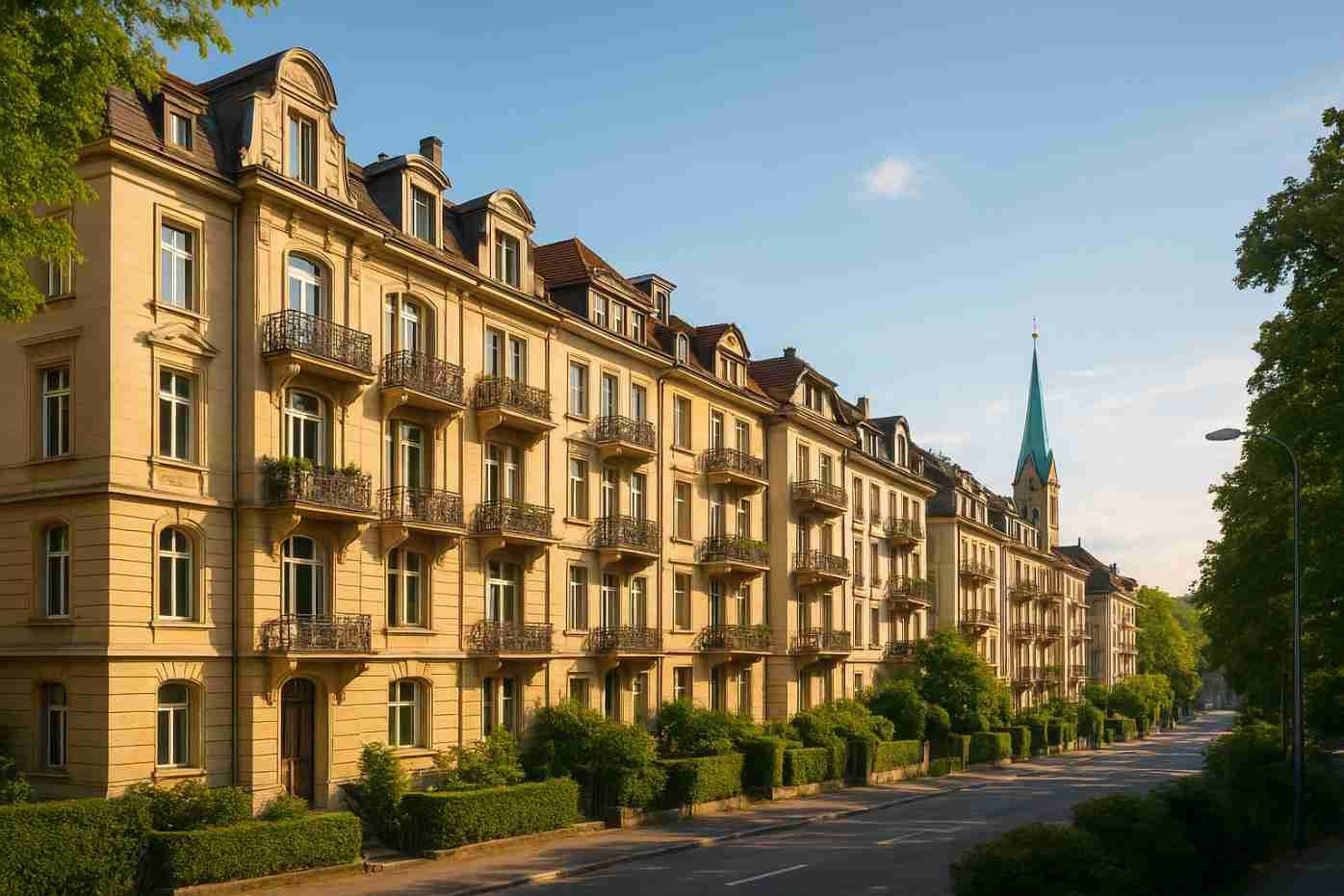




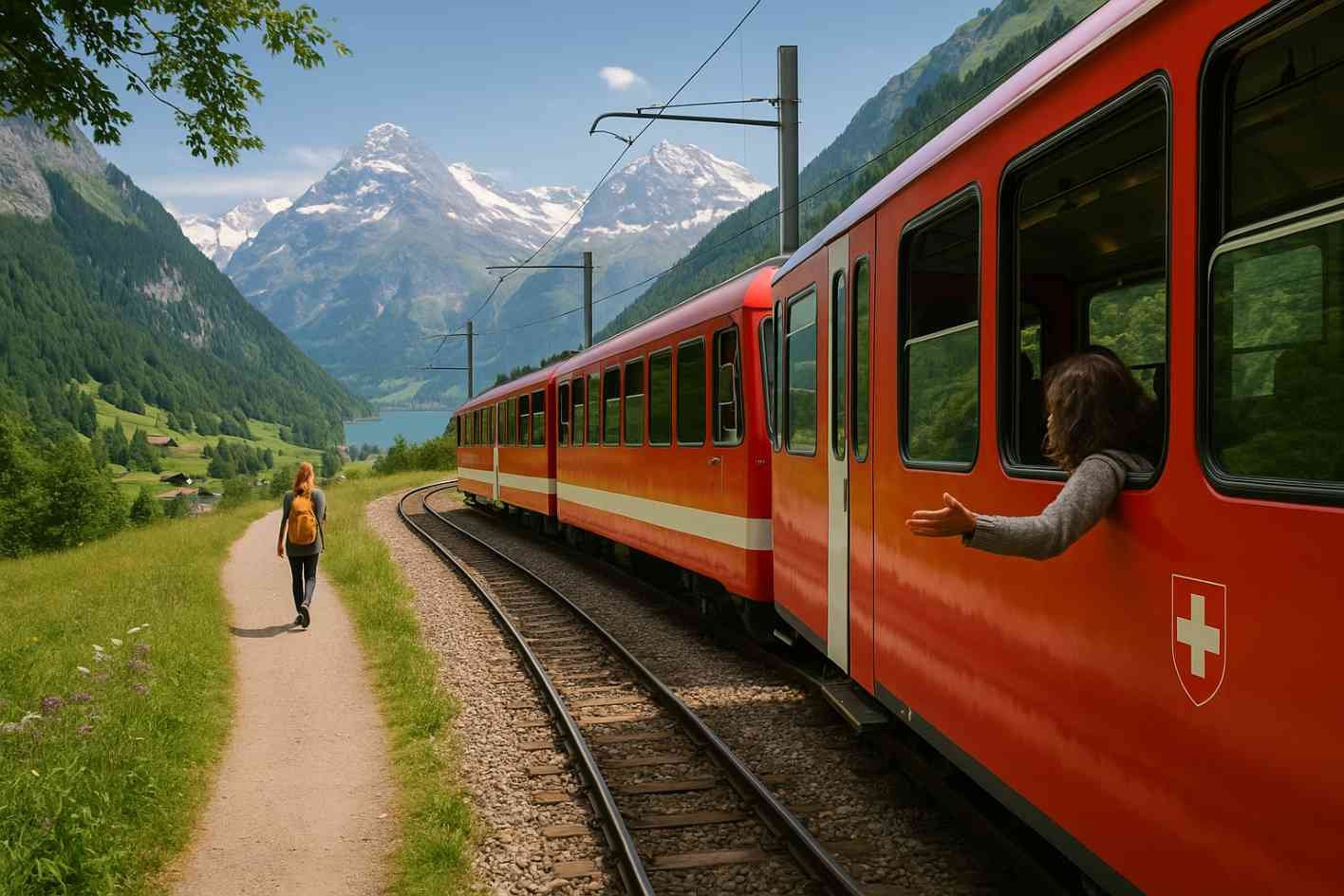
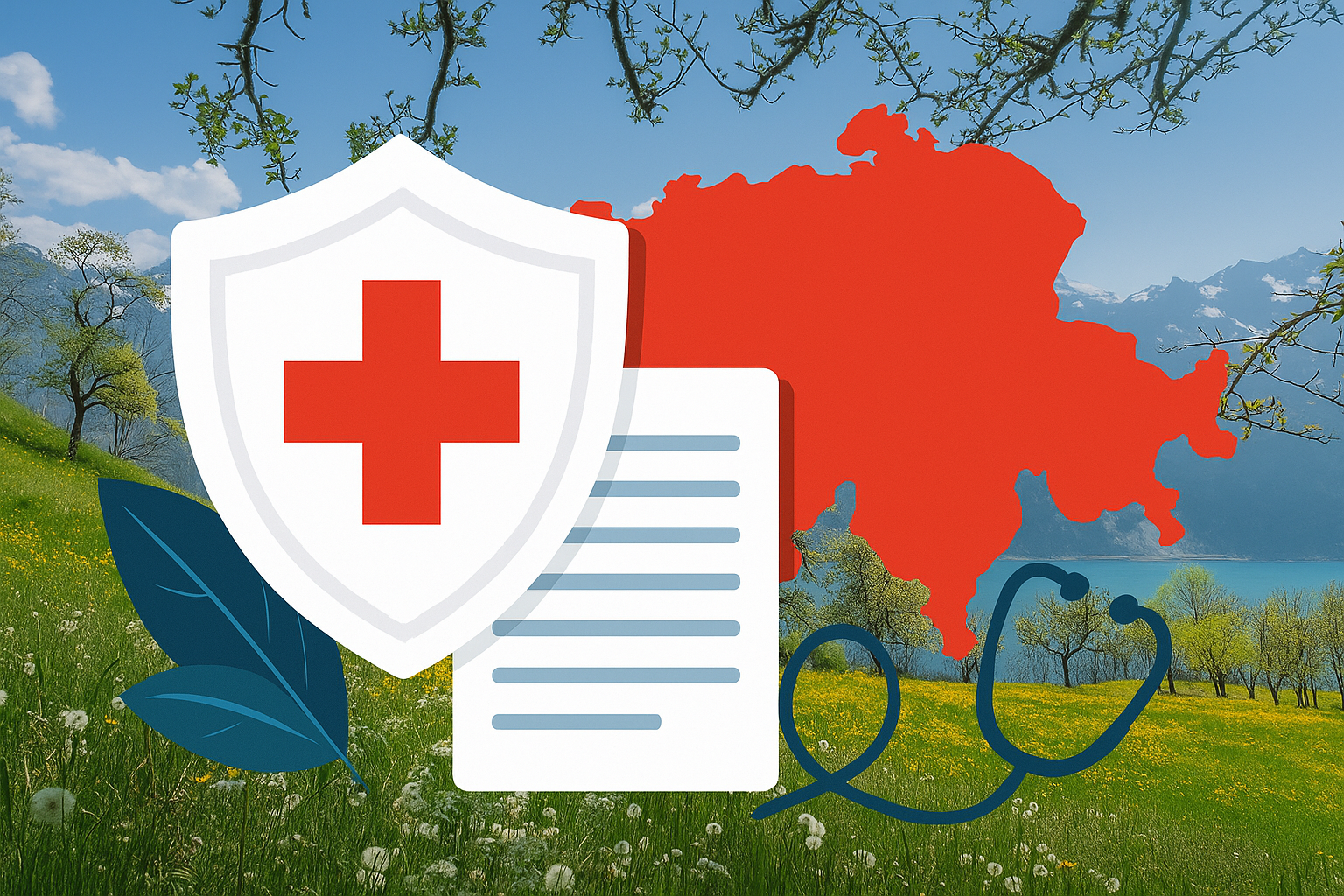


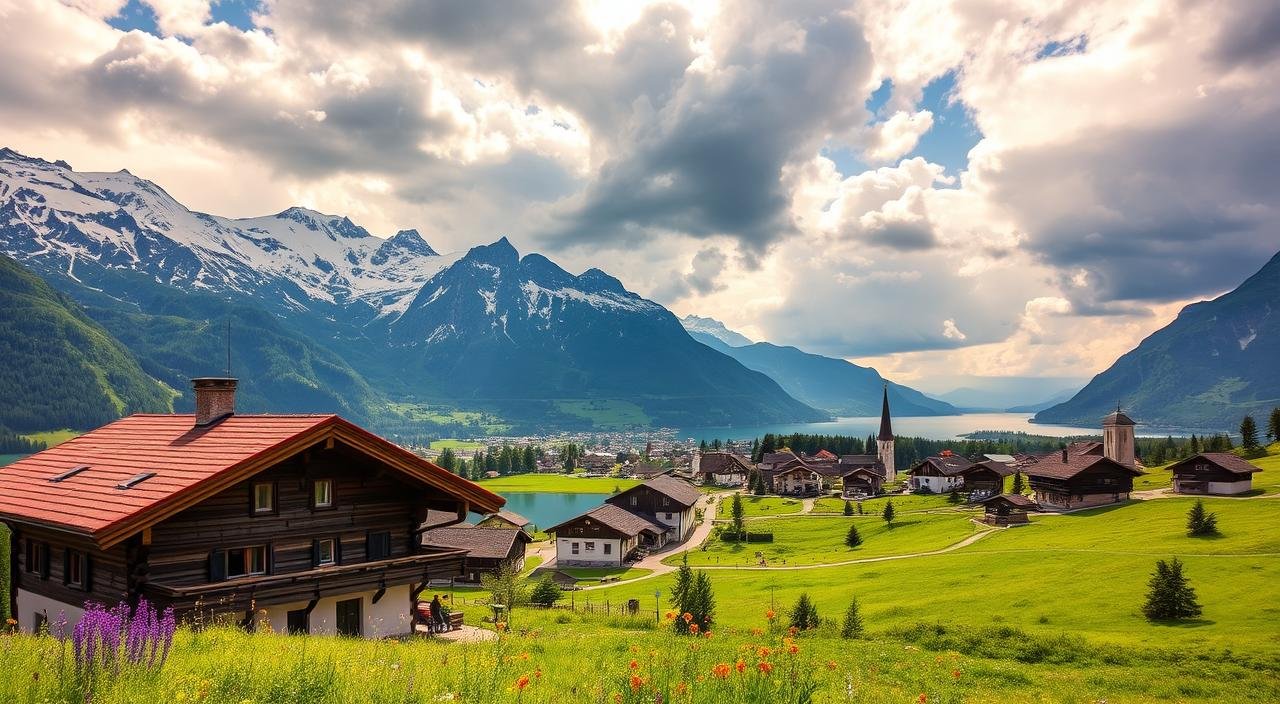
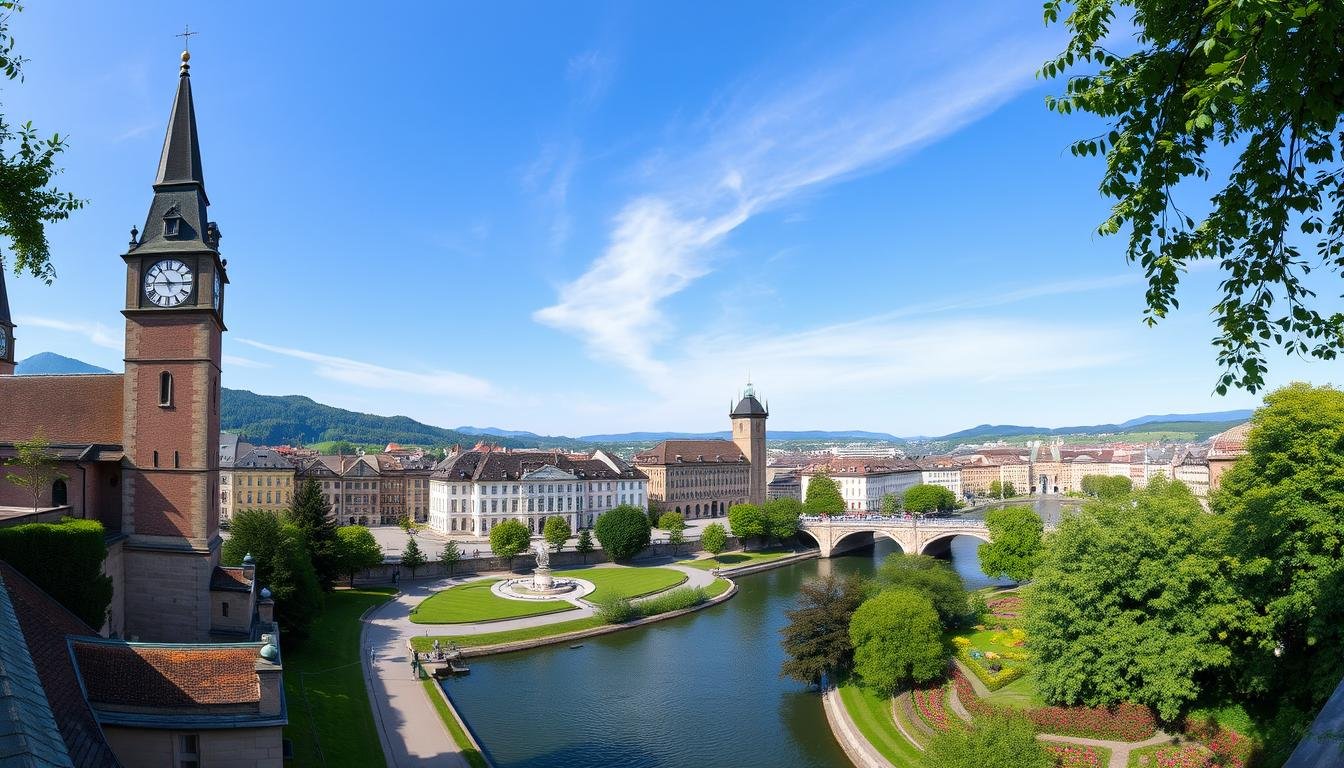
[…] be honest, when I first moved to Switzerland, I completely misunderstood blue zones. I thought, Free parking? Great! and went shopping for […]
[…] What is the Fastest Way to Become a Swiss Citizen – Step-by-Step […]